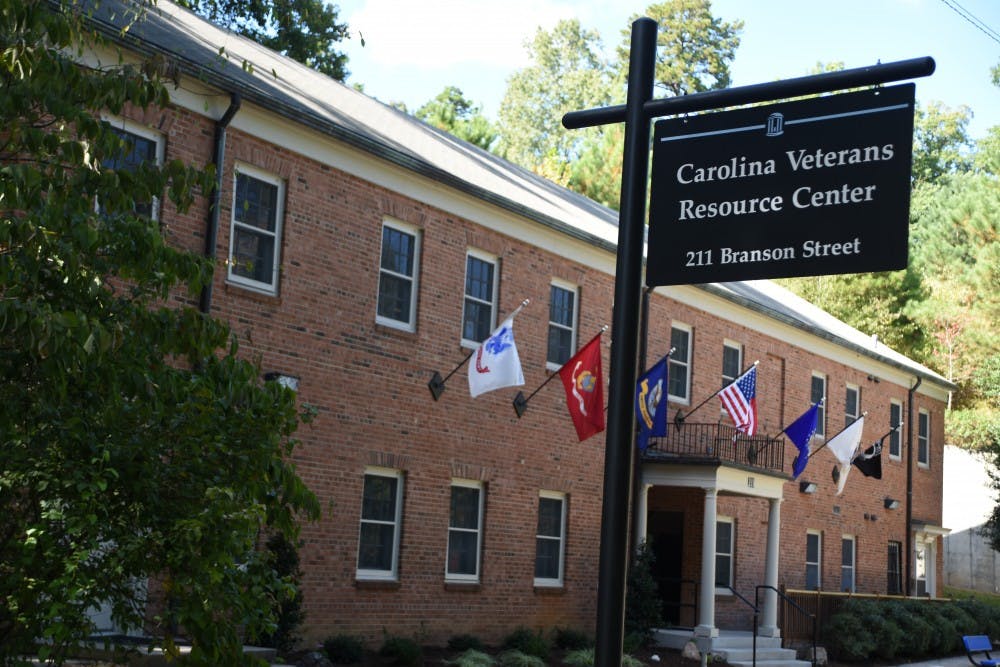For Doug Yorty, transitioning from a seven-year military career to student life offered its fair share of difficulties. After being stationed in Fort Bragg, Yorty now pursues a double major in peace, war and defense and political science, while holding a position as the event coordinator for the Carolina Veterans Organization.
“Having been in the military for so long, you’re used to a certain different way of life and a culture that is incredibly unique to the military itself, and so not being around that was just a big transition because, for better or worse, your platoon is really your family in the military. And then all of a sudden you’re just, you're stripped from all that,” Yorty said.
The Carolina Veterans Resource Center supports military affiliated students with their student lives at the University. This week the center hosted a variety of events leading up to Veterans Day. The center offered students a chance to chat with veterans in the Pit over coffee and play corn hole with a veteran in the Student Union. Later this week, the Carolina Veterans Organization will be participating in a Ruck March for Hunger walk around Franklin Street, which Yorty helped organize.
Student Veteran Assistance Coordinator Amber Mathwig helps veteran students on campus by giving them the resources they need to succeed in their new environment. She speaks to prospective students about how to become a competitive applicant, helping current students adjust to UNC and guiding students and their families to understand their veterans affairs benefits.
“Veterans week is about inviting the campus community to see veterans as they are at the University,” Mathwig said. “To engage in conversation with them, to recognize them as having been in the military, as having served.”
Senior Briana Carter was inspired to join the Carolina Veterans Resource Center from her experience with her father being a Marine.
“We try to support the mission of the Carolina Veterans Resource Center which tries to bring in the veteran students, but on top of that any military affiliated student and try to help them cope with some of the things that non-traditional students experience during their undergraduate career at Carolina,” Carter said.
The specific experience of military life leads to it being misconstrued by those who cannot relate, both Yorty and Carter said.
“(Because) we’re in a combat job and deployed and seeing combat in some way or manner that you’re broken mentally, or the high rate of suicide with veterans also brings a certain (stigma) and the awareness of PTSD and traumatic rage,” Yorty said. “I think sometimes that just clouds the view of veterans and that’s far from the case. It’s also far from the case that all veterans have gone overseas and seen some difficult things. I think that’s also a common misconception.”



